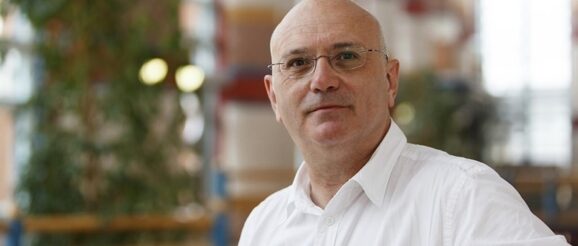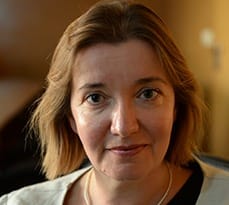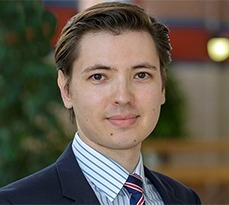Impact and engagement at the Cambridge Centre for Social Innovation and Cambridge Social Ventures

Each of our research centres has unique ways to engage with non-academic organisations and, through that, to generate real world impact.

This month we decided to share with you the work of the Cambridge Centre for Social Innovation (CCSI) and of the connected incubator programme Cambridge Social Ventures (CSV).
The impact and engagement of CCSI is based on the virtuous interlink between the research its academic members conduct, its delivery of a two-years Master of Studies (MSt) in Social Innovation, and its practical support of social innovators through CSV and frequent engagement with students and startups from all over the world. The Centre summarises its unique impact formula with “Think, Teach, Do”.
Studying and supporting social innovation
Since 2014, CSV has supported 175 ventures through its 12-month flagship incubator programme and has helped over 1,000 aspiring social entrepreneurs through its Social Venture Weekends and other short workshops. The team helps entrepreneurs to embed their social mission at the heart of their business, with training in finance, governance, impact assessment, sales and more, and by pairing them up with a dedicated business advisor, who guides them through the challenges of starting and growing a social enterprise. In 2017, Dr Neil Stott and Dr Belinda Bell won the Cambridge University Vice Chancellor’s Impact Awards for Public Engagement thanks to the diverse people reached through the programme and the impact this had had on their entrepreneurial projects. Entrepreneurs supported by CSV have been recognised with major national awards from groups including Social Enterprise UK, and several have gone on to join prestigious international programmes like Y Combinator. That said, the Centre is equally proud of ventures whose work might not steal the spotlight, but which has nevertheless created deep impact in local communities and in individual lives.

CSV, however, is not the only way through which CCSI engages with and impacts practitioners. Two other key strategies that help CCSI make a difference are its research approach and translation. All researchers affiliated with the Centre take on projects that have a clear practical relevance and urgency and engage with social enterprises and social innovators in the field to solve problems together. For example, Dr Helen Haugh and Dr Timur Alexandrov are currently working on a collaborative research project with the Diocese of Ely to help communities make fuller use of their historic churches through social entrepreneurial approaches. Additionally, the Centre empowers the students from the MSt in Social Innovation to undertake practitioner research and contribute to the formation of new knowledge for this emerging field. Each student needs to submit a dissertation that is based on a research project shading light on a topic of relevance for their own organisation or in the broader social innovation space, providing insights that other innovators and entrepreneurs can leverage to enhance their impact.

The CCSI takes seriously its responsibility to share its research and its practice with the world. Students are supported to turn their dissertation research into practitioner-focused reports, toolkits, conference papers and even comics. Insights from CSV’s support for entrepreneurs are shared with colleagues at professional development events and public talks. The Centre also publishes a wide range of videos, podcasts and articles throwing the spotlight on individual innovators and creating the space to discuss new research.
Creating a virtuous circle of impact
Together, CCSI and CSV create a virtuous circle of impact. The studies conducted with social entrepreneurs by the researchers at CCSI and by the Master students inform the support that CSV provides to social entrepreneurs. In turn, the various cohorts that CSV supports help CCSI researchers deepen their understanding of social entrepreneurship and of social innovation. In 2018, research into the journeys taken by CSV entrepreneurs enabled Professor Tracey, Dr Stott and Dr Christian Hampel to uncover new insights into how the personal motivations and prior experiences of social entrepreneurs might affect their decisions as business leaders. This, in turn, allowed CSV to shape their support to suit the varying practical and emotional needs of entrepreneurs.

Similarly, the training that CSV provides is a source of knowledge about what works and what doesn’t and a way to constantly refine both “thinking” and “doing”. From its beginnings, CSV made the conscious choice of not organising “pitch” days and of not delivering ad hoc mentorship, focusing instead on providing alternative opportunities that would not create a strong power imbalance between the entrepreneurs and the investors or mentors supporting them. The success of this approach, as testified by the feedback from all stakeholders, has led CSV to share it with other universities, intermediaries and organisations supporting social entrepreneurs and has informed the teaching content of the MSt in Social Innovation.
Additionally, the MSt includes in-depth interviews, case studies and practitioner-led teaching from CSV ventures and the opportunity for students to engage with and support them and, in return, to be inspired by them. The research produced by the students of the MSt completes the virtuous circle. For example, in 2019, the research on social innovation labs of Claudia Marcelloni, one of the students of the 2016 Master’s cohort, was published in the CERN IdeaSquare Journal of Experimental Innovation as an academic piece. This way, the research produced by the Centre has the potential to influence the thinking of CSV cohorts and beyond both directly and indirectly.
The post Impact and engagement at the Cambridge Centre for Social Innovation and Cambridge Social Ventures appeared first on Cambridge Judge Business School.
